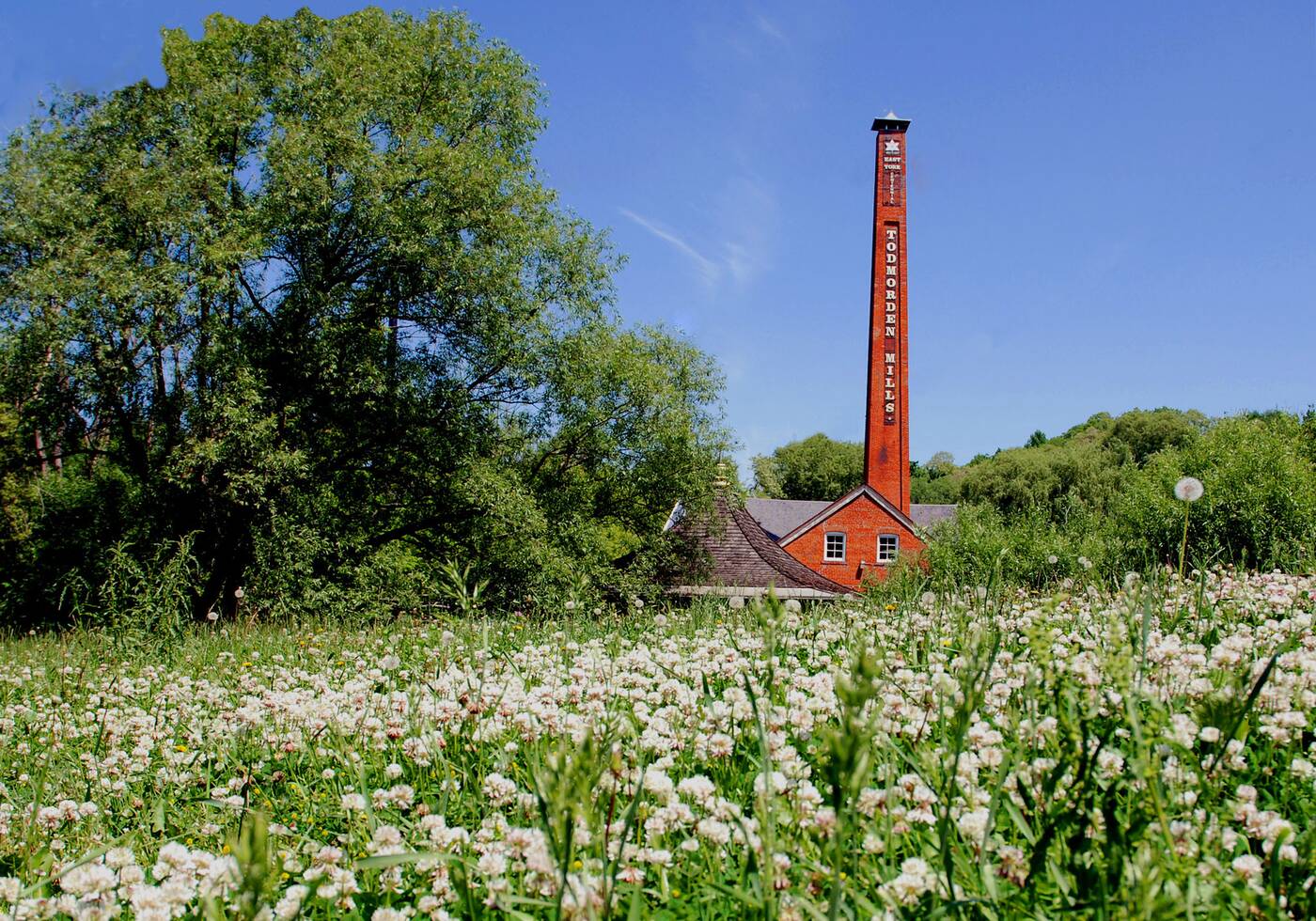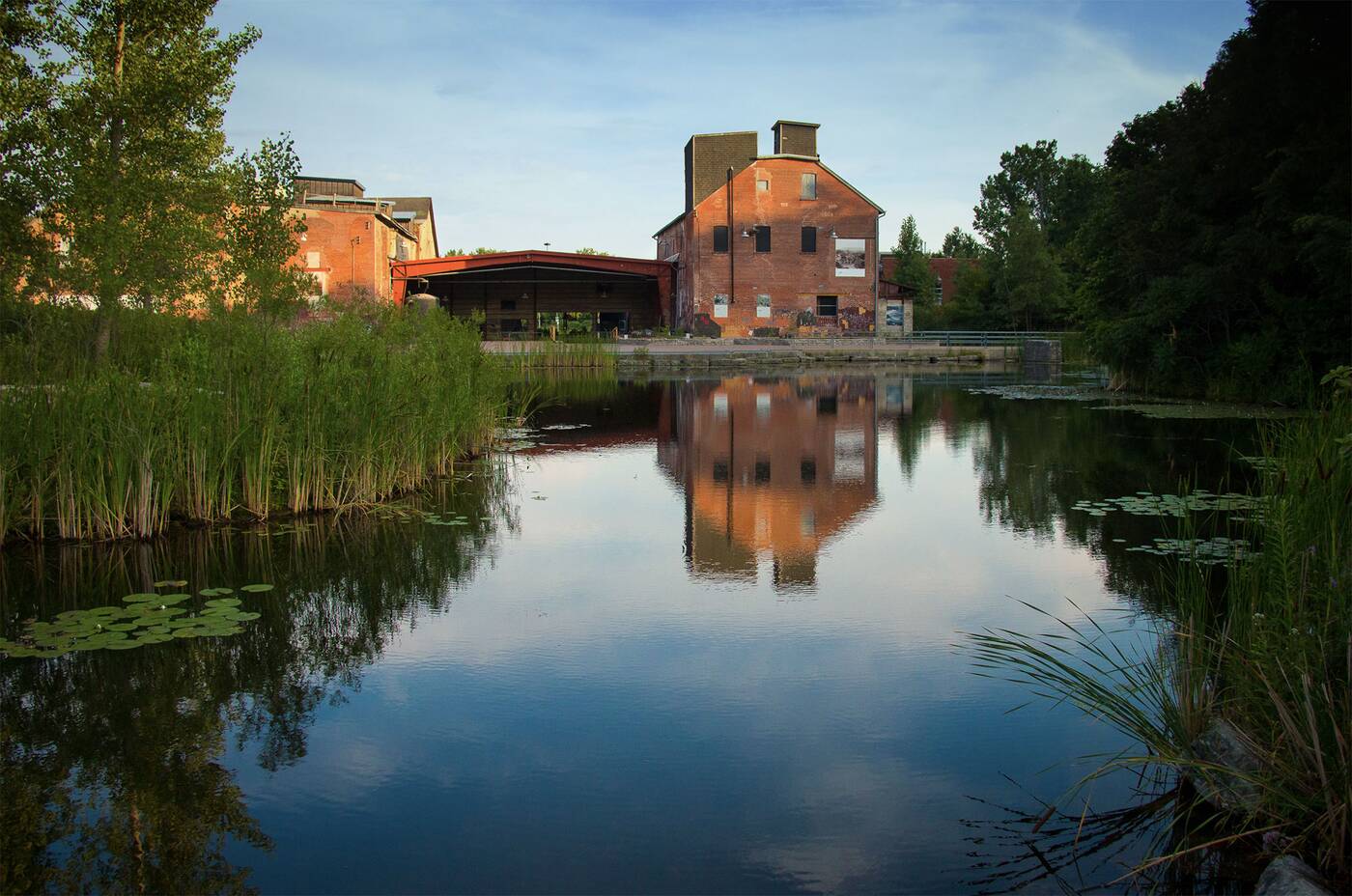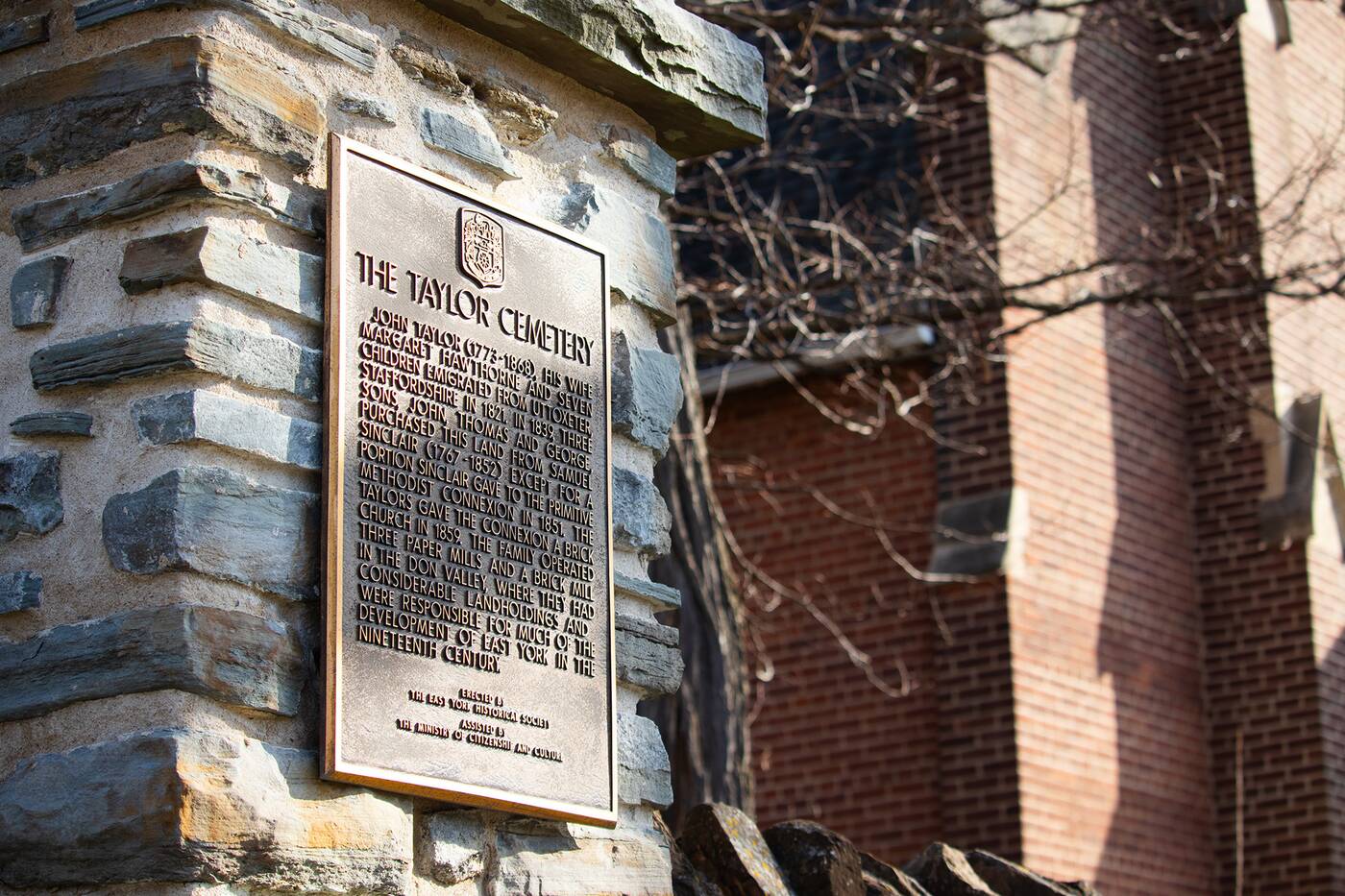
A brief history of one of Toronto's pioneering industrial families
The Taylor family's story begins in 1821 when John Taylor Senior, along with his wife Margaret and their seven children, left the County of Staffordshire, England, for the New World.
After settling briefly in Cherry Valley, near Albany, New York, they moved to Vaughan Township in Canada in 1825. There, they pioneered for nine years before finally making their home at the forks of the Don River.
In 1839, three of John Taylor's sons, John, Thomas, and George, purchased land in the Don Valley, marking the beginning of the family's ventures into various industries.
They established paper, grist, and flour mills, which became vital components of the local economy. Operating around the clock, their paper mills supplied various types of paper across Canada, including newsprint and book paper.
John Taylor's innovative spirit led to significant breakthroughs in Canada's paper industry when he developed an alternative papermaking method using wood pulp. His patented technique revolutionized the industry and solidified the family's industrialist reputation.
Meanwhile, one of John's nephews, William Taylor, stumbled upon rich clay deposits in the Don Valley while working on a fence in 1882. This discovery led the Taylors to found the Don Valley Brick Works, which quickly became one of the provinces most important brickworks.
The significance of the brickworks became especially pronounced after the devastating Great Fire of 1904, which ravaged downtown Toronto. In the aftermath, the Brick Works played a crucial role in the city's reconstruction efforts, supplying the bricks needed to rebuild.
The Taylor family's journey from England to Toronto is a tale of perseverance, innovation, and industry. Several landmarks in the Don Valley and its surrounding area remain as reminders of the Taylor family's lasting impact on Toronto's development.
John F. Taylor House
Built in 1885 for John F. Taylor, the third generation of the Taylor family, the Queen Anne Revival-style residence, located at Broadview Avenue and O'Connor Drive in East York, overlooks the Don Valley, where the Taylor family operated several businesses.
The Taylor House currently serves as an assisted living and care facility operated by the Sisters of St. Joseph, preserving its historical significance while adapting to modern needs.
Todmorden Mills
Initially operated by the Skinner Family, Todmorden Mills came under the ownership of the Taylors around 1855. The site, which once produced lumber, was converted to produce felt paper under the Taylors' operation.

A view of Todmorden Mills. Photo by Still the Oldie.
Today, Todmorden Mills is a historical site and a vibrant cultural hub featuring a museum that offers insights into Toronto's industrial heritage.
Evergreen Brick Works
Before industrialization, the Don Valley and surrounding area was Indigenous territory.
In 1787, the "Toronto Purchase", a historic agreement tainted by misunderstandings and disputes, saw the Mississaugas cede much of their land to the British, marking the region's transformation.

The Evergreen Brick Works in Toronto. Photo by A Great Capture.
Fast forward to 1889, when the Taylor brothers seized an opportunity presented when William Taylor uncovered clay ideal for brickmaking. This led to the establishment of the Don Valley Brick Works, known today as the Evergreen Brick Works.
Today, Evergreen Brick Works is a vibrant center for environmental education, sustainability initiatives, and community engagement.
Taylor Family Cemetary and Don Mills Church
In 1839, John, Thomas, and George Taylor purchased land from Samuel Sinclair and funded the area's first brick church, still in operation and known today as Don Mills United Church.

A sign for the Taylor Cemetery. Photo by Erin Horrocks-Pope.
The Taylor Family Cemetery was established on the church's grounds around 1839 and is available to Taylor Family descendants for interment.
Currently maintained by the City of Toronto, the cemetary is no longer active but remains as a reminder of the Taylor family's legacy of innovation and industrial pioneering.
Erin Horrocks-Pope
Latest Videos
Latest Videos
Join the conversation Load comments







